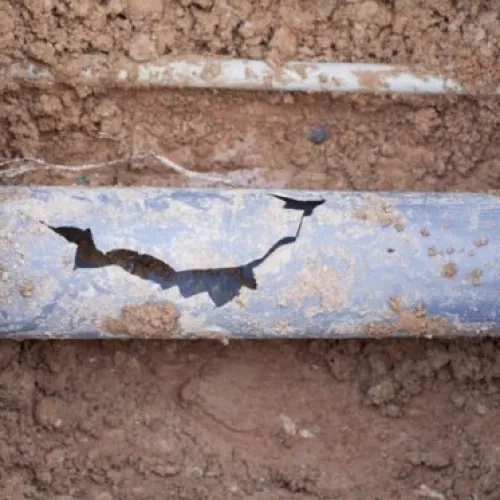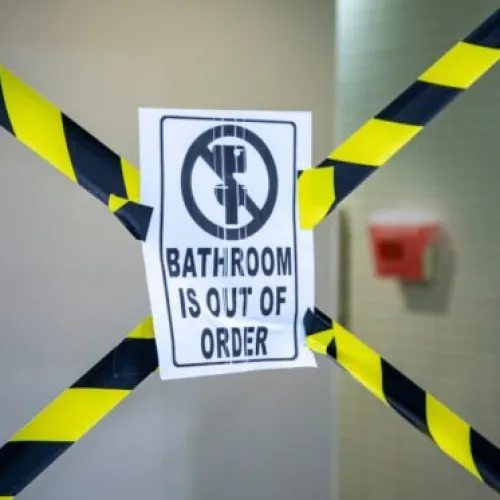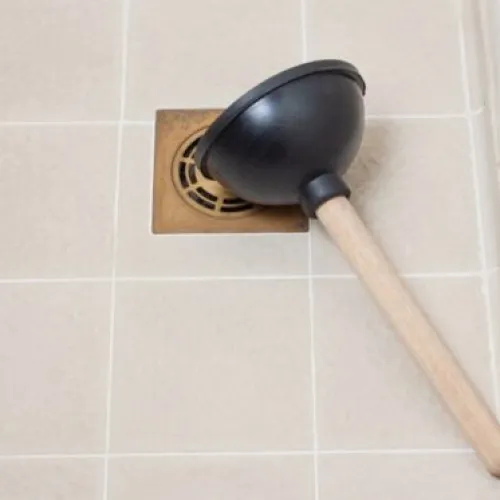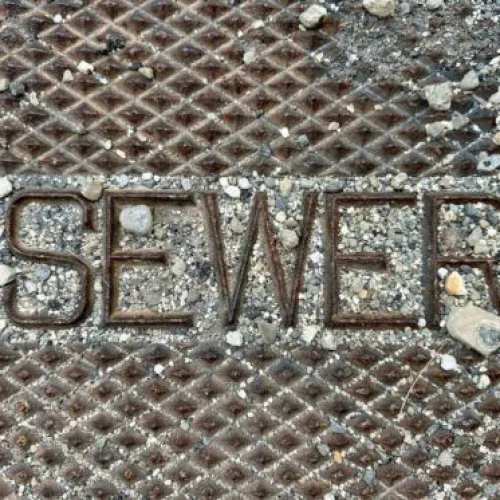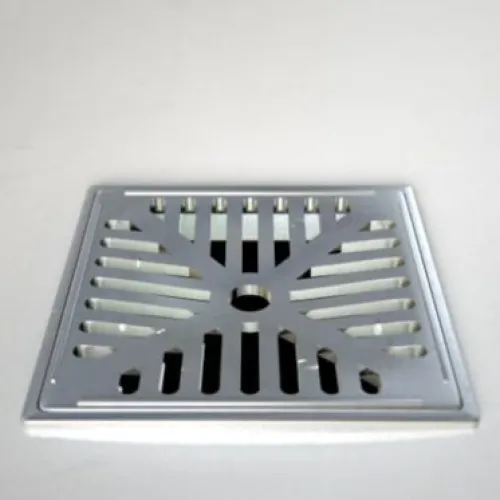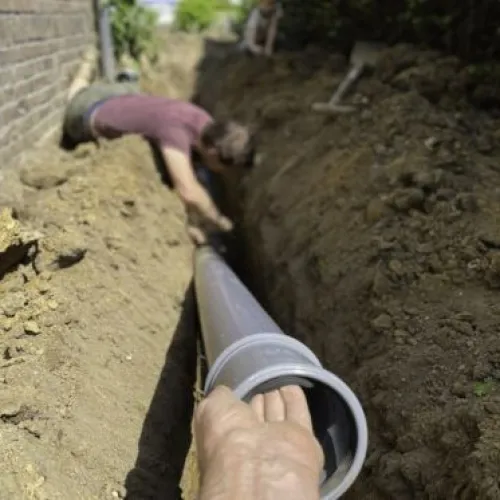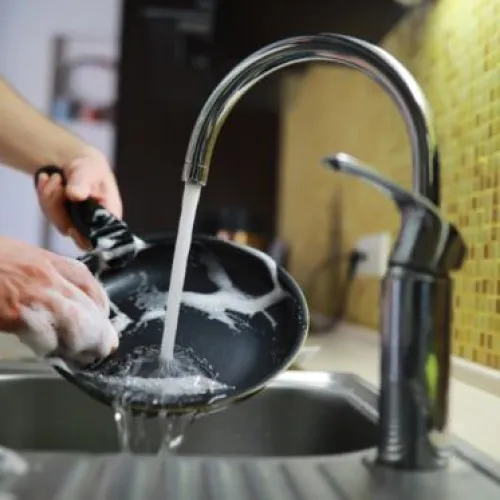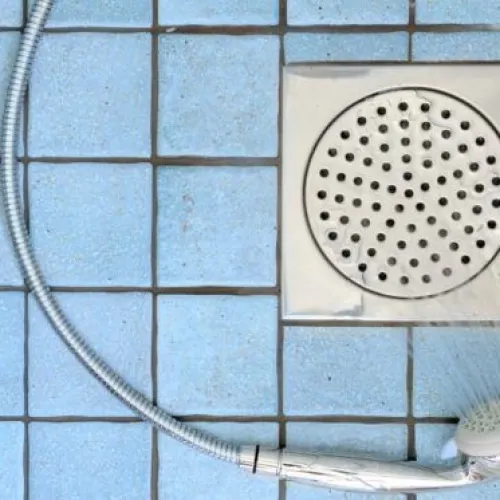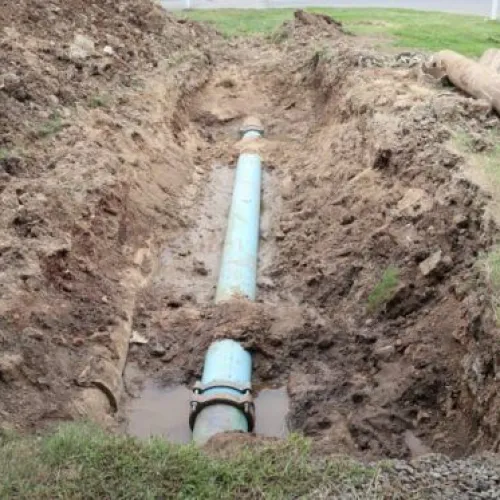
PV: The Home Performance Experts
Experience Safer, Cleaner Water Throughout Your Home
Tired of questionable tap water in Atlanta? A whole-home water purification or reverse osmosis system can help remove up to 99% of harmful contaminants—like lead, arsenic, and PFAs—so you can trust every glass you drink and every shower you take. Ready for healthier water? — book a free consultation today.
Home Water Purification: How It Works and Why It Matters
Water purification goes beyond taste. The right system can remove chemicals, heavy metals, and other impurities at every faucet or in a specialized reverse osmosis unit under your sink. Here's why it's so important:
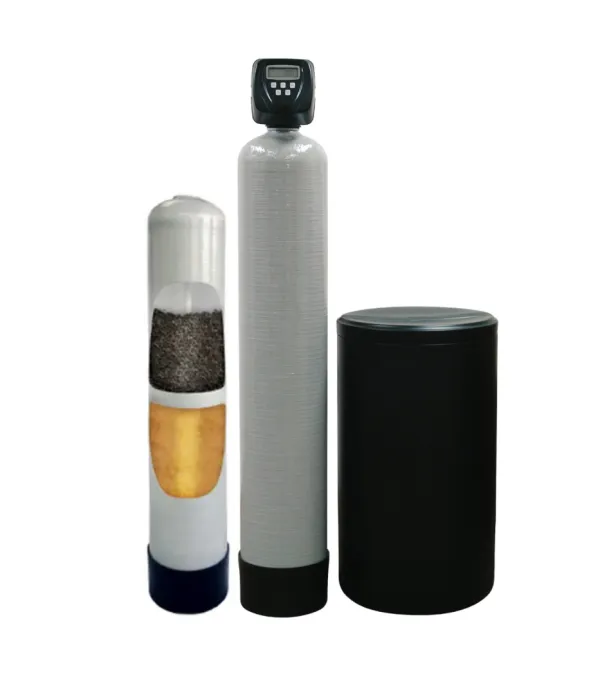
- Removes Harmful Contaminants — Whole-house systems help reduce a broad spectrum of pollutants—like chlorine, pesticides, and volatile organic compounds—while a dedicated reverse osmosis unit can remove up to 99% of lead, arsenic, PFAs, and more.
- Healthier Hair & Skin — Impurities like chloramines and metals can dry out skin or dull hair. Filtration systems help keep your hair silky and your skin softer.
- Reduces Plastic Waste — Filtered water at every tap means fewer plastic bottles, saving you money and cutting down on environmental impact.
- RO for Superior Purity — Reverse osmosis (RO) is now a popular choice in Atlanta because it’s highly effective at filtering nearly all contaminants—more thorough than any refrigerator filter.
- Tailored Solutions — Whether it’s a point-of-entry carbon system or a point-of-use RO device, our team can customize the best approach for your home’s unique water challenges.
Feel Confident in Your Water Quality
6 Reasons to Consider a Whole-House Water Purification or RO System
1 Eliminate Nasty Chemicals
Chlorine, chloramines, heavy metals, and PFAs can be removed before they ever reach your faucet—helping protect your health.
2 No More Brittle Hair & Dry Skin
By reducing harsh chemicals like chlorine or metals, purified water can result in softer hair and smoother skin, free from that dry, brittle feel.
3 Better-Tasting Cooking & Drinks
Filters remove funky flavors and odors, so your coffee, tea, or pasta dishes start with pure, fresh water.
4 Less Reliance on Bottled Water
High-level filtration—especially reverse osmosis—provides water even cleaner than typical store-bought bottles, saving money over time.
5 Protect Plumbing & Fixtures
Removing corrosive substances reduces scale buildup and rust stains, prolonging the life of pipes and appliances.
6 Adaptable to Your Needs
From basic carbon filtration to advanced iron removal or multi-stage RO units, there's a system that fits your budget and water profile.
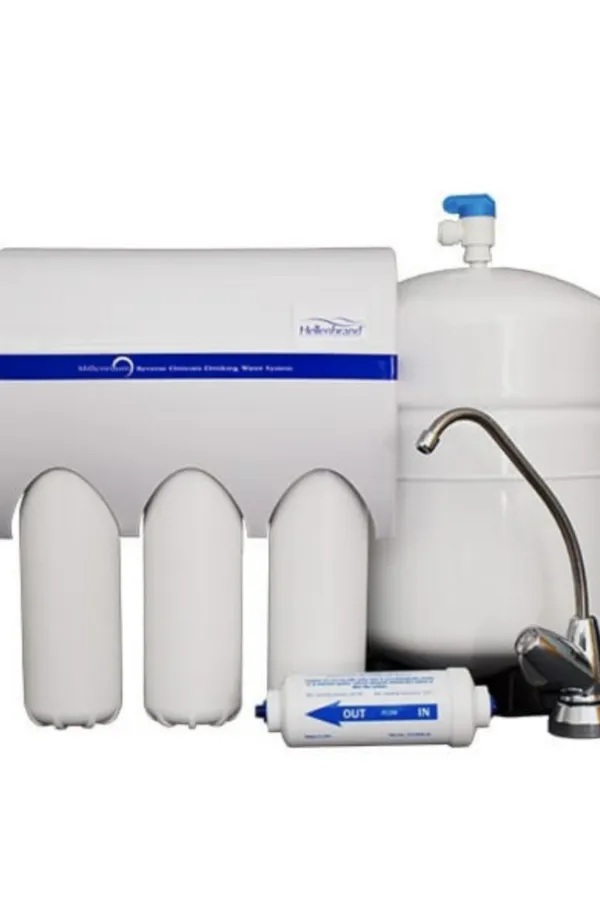
INFO CENTER
All About Home Water Purification: Key Details, Tips, and Benefits for a Worry-Free Home
What’s the difference between whole-house filtration and reverse osmosis?
Whole-house filters (point-of-entry) remove chemicals and impurities for every faucet, shower, and appliance in your home. Reverse osmosis (point-of-use) typically installs under a sink for high-level purification of drinking and cooking water—filtering out even more contaminants like lead and arsenic.
How effective are these systems at removing PFAs, lead, and arsenic?
Carbon-based filters are excellent at reducing chlorine and certain chemicals, but reverse osmosis is particularly effective—often removing up to 99% of lead, arsenic, PFAs, and other tough contaminants.
Can a simple refrigerator filter compare to RO purification?
Not really. Most fridge filters primarily reduce taste and odor issues. Reverse osmosis systems go further, capturing far smaller particles and significantly higher levels of impurities—resulting in cleaner, safer drinking water.
Is a whole-house filter overkill if I only drink tap water in the kitchen?
Not necessarily. If you shower or wash clothes in heavily chlorinated or iron-rich water, you can still benefit from a whole-house system—especially for hair, skin, and preserving fixtures.
How often do I replace or service these filters?
Maintenance needs vary by system. Carbon filters typically last 6-12 months before re-bedding or cartridge changes. RO membranes may require replacement every 2-3 years. An annual check helps ensure optimal performance.
Are these systems expensive to install and maintain?
While initial costs vary, many homeowners find that reduced bottled water purchases and fewer plumbing issues offset the investment over time. Plus, better-tasting and safer water can be priceless for overall peace of mind.
We did not find your search. Please try another entry.
